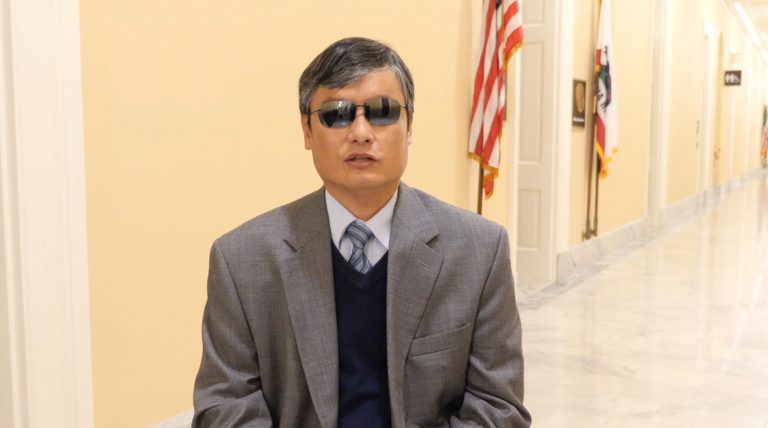Aug. 13 marked the fourth year since Chinese human rights lawyer Gao Zhisheng, lauded as “China’s Conscience,” disappeared for the last time into the custody of the communist regime’s security apparatus.
In an interview with the Chinese-language edition of Vision Times, blind Chinese activist Chen Guangcheng urged the United States and other countries to collectively put pressure on the Chinese Communist Party (CCP).
Chen, himself a lawyer famous for defending the poor and disenfranchised, said that methods such as restricting Party officials’ travel to Western countries would prove very effective and could even compel the regime to release dissidents such as Gao.
Gao, a self-taught attorney who built his career in the 1990s and early 2000s, was once recognized in Chinese media as one of the nation’s top ten lawyers.
However, he became an enemy of the Party by daring to represent adherents of Falun Gong, the popular Chinese spiritual group that remains heavily persecuted to this day. Gao was subject to much of the torture commonly visited upon Falun Gong detainees, and his family was constantly harassed until they managed to escape to the U.S.
Success
You are now signed up for our newsletter
Success
Check your email to complete sign up
Gao has been incommunicado for almost all of the last decade. The last news concerning his status was in 2017, when he reportedly attempted to escape house arrest in his native province of Shaanxi.
“The CCP has illegally kidnapped, imprisoned, and cut off all contact for Gao Zhisheng with the outside world, without any reason or excuse. It is the same manner as mafia and bandits,” Chen said. He believes that the United States should put Gao Zhisheng’s case on the agenda in talks with Beijing, and urge the CCP to release him.
Chen miraculously escaped house arrest in 2012, arriving at the U.S. Embassy in Beijing and later gaining asylum in the U.S. He is now a senior visiting scholar at the Catholic University of America.
‘So far, this has been the most effective policy’
According to Chen, the pressure that sanctions put on CCP officials — many of whom squirrel away their assets and family members in the U.S, Canada, and other democracies — is “very significant.”
“So far, this has been the most effective policy. We should keep it up and push to the end,” he said.
Chen believes that the vast majority of Chinese regime officials joined the Party for profit, not ideology, so they will only budge if their interests are threatened.
“If the United States continues to implement such sanctions, uniting its allies, and makes CCP members unable to leave China, then they will see the imminent harm to their interests and have something to worry about,” Chen said.
At the same time, strong sanctions on the Party would win the support of ordinary Chinese, who are resentful of the regime’s deep corruption.
“The Chinese people’s awareness of the CCP’s malign character is growing rapidly,” Chen said, cautioning that “while on the surface there seems to be fewer people willing to risk their livelihood to speak out, it does not mean that the Chinese people do not know the lies of the CCP.”
Chen gave two examples. One was that right after the U.S-China trade tariff policy was announced on the Weibo account of the US Embassy in China last year, 827 comments were posted soon after the announcement. The censors deleted 813, leaving only a few messages that supported the regime and indicating that the deleted posts were overwhelmingly negative.
Another example occurred when the Party announced a three-child policy, effectively reversing decades of compulsory abortion and sterilization for parents who dared “over-birth” — a human rights violation that Chen himself fought against.
Of more than 30,000 comments soon posted to the announcement, 93 percent expressed indifference and even disdain for the new policy. Many of the posts expressed indifference for having more children, as well as inability to raise them in the worsening economic environment under the Party’s leadership. Some mocked the regime for trying to “grow more leeks” to harvest later.
The term “cutting leeks” in Chinese is a neologism that refers to the Party disenfranchising private business and ordinary citizens after allowing them a certain degree of freedom to pursue economic activity.
On June 1, the article announcing the policy completely disappeared from the official websites of People’s Daily and Xinhua News Agency, two of the largest state-run papers.
Chen Guangcheng believes the Communist Party is on the way out of power, “but the efforts of the Chinese people and the people all over the world can reduce the lifespan of the CCP and sweep it into the garbage dump of history as soon as possible.”















